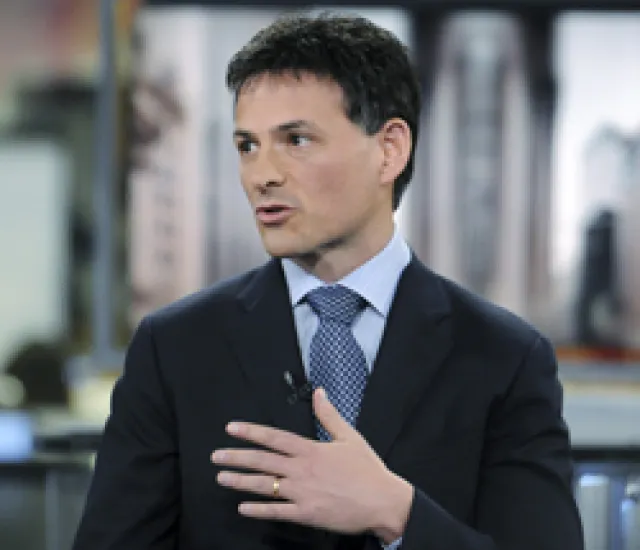
David Einhorn, president of Greenlight Capital Inc., speaks during a Bloomberg television interview in New York, U.S., on Thursday, Dec. 16, 2010. A takeover of St. Joe Co., the largest private landholder in northern Florida, is unlikely because the company's financial condition would make financing a leveraged acquisition "very tough," said Einhorn, who is short the shares. Photographer: Jonathan Fickies/Bloomberg *** Local Caption *** David Einhorn
Jonathan Fickies/Bloomberg


